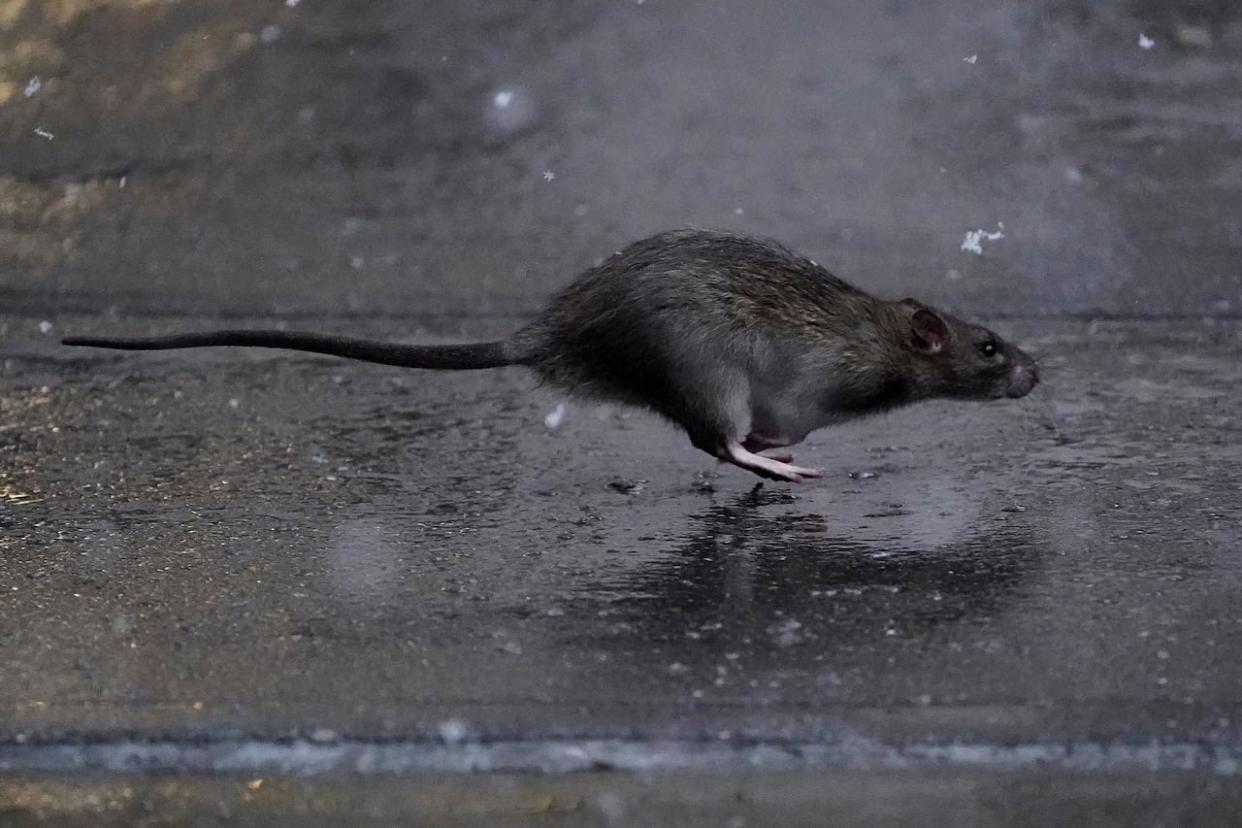Social media video of rats in downtown Vancouver renews debate over pest control

A video of a large group of rats near the Burrard SkyTrain station in downtown Vancouver has sparked concerns about a rise in pests in the region and a debate about whether changes in regulations around rat poison in the province are contributing to the problem.
The video was posted to the online discussion website Reddit, sparking a number of comments about the rise of the rodent population in different parts of Metro Vancouver.
Jay McIntyre of Solutions Pest Control has worked in Metro Vancouver for almost two decades. He says there has been an increase in service calls for rats over the last two years.
"We're getting rat calls in places we've never really gotten that many before," McIntyre told CBC News. "And usually by the time the clients know it, it's an established population. It's not one or two, it's seven or more."
In January 2023, B.C. adopted a new regulation prohibiting the sale and use of second-generation anticoagulant rodenticides (SGARs) for all members of the public and most commercial and industrial operations.
The change came about because owls and other wildlife that feed on rodents were also dying from the poison.
Kaylee Byers, a senior scientist with the Pacific Institute on Pathogens, Pandemics and Society at Simon Fraser University, says it's unclear whether the regulatory changes have contributed to a rat population boom.
Byers says she is aware of an increase in chatter around the rats, but cites the old axiom that correlation is not causation. Just because the ban on SGARs happened around the same time as an anecdotal growth in the population, she says, doesn't mean they are linked.
The bigger issue, she says, is a lack of data.
"We don't have a way to track rat populations over time," she said.
She notes that tracking rat populations is complex, and would require buy-in from the general public to report sightings. She said Vancouver residents can report sightings to the city's 311 hotline, which provides access to municipal services, but it's not set up to be a systematic way of tracking the rat population.
The City of Vancouver says there were 1,174 cases involving rats reported to 311 last year.
In 2022, there were 1,249 calls involving rodents and 1,175 in 2021, but those numbers include all mentions of rats, mice and other rodents, not just rats.
The city said staff closely monitor rat-related calls, which are addressed on a case-by-case basis.
A statement from B.C.'s Environment Ministry says it amended regulations because SGARs pose "a serious risk to children, pets and wildlife through direct and secondary poisoning."
"Simple rodent prevention methods, like rodent-proofing buildings and cleaning up rodent attractants, are more effective and sustainable pest prevention methods," the statement reads.
"When needed, other rodenticides (non-SGARs) and products (e.g. traps) are available to use."
McIntyre said the SGAR ban forced him to adopt a new way of thinking.
"It was sort of easy, a crutch," he said of SGARs. "Then it was like, oh we don't have the poison to deal with these rodents anymore.
"But we can still control them with traps, exclusion, and proper sanitation around garbage bins."


